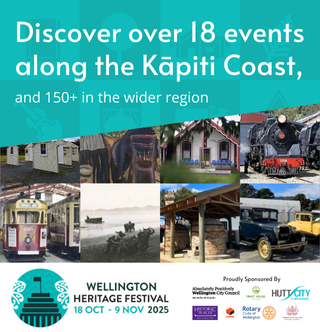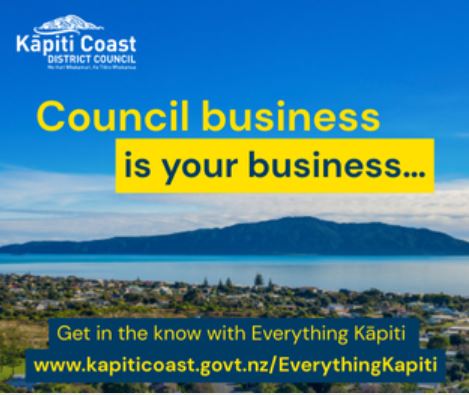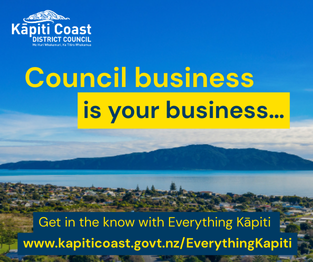Is the proposed river recharge scheme the right one for Kāpiti? The Kāpiti Fly Fishing club doesn’t think so.
We think the proposal contains too many uncertainties and risks say its spokesperson Ken McWilliams. The regional council, KCDC and many local people have spent years reclaiming and restoring the Waikanae river and its flora and fauna to an almost pristine condition; enjoyed by Kāpiti residents and its many visitors. We do not want to see that all jeopardised.
It is evident in the news media and local people we have spoken too tell us about the poor quality of the bore water with its terrible taste and associated problems. There seems to be an overwhelming preference for the construction of a dam as the best long term solution for Kāpiti’s water supply, adding that now that Council have acquired the land for a dam why not just get on and build it!
The current hearing in front of the commissioners to determine the granting of resource consent has been largely left to the opposing groups of scientists from the Wellington Regional Council, KCDC and community groups such as the Kāpiti Fly Fishing club who have an awareness of the uncertainties and risks of this proposal. But this proposal to recharge the river with bore water affects every resident of Kāpiti. We urge Kāpiti residents to get engaged before it is too late. Not doing so runs the risk of damage to some of our best natural assets on the coast.
The Risks
The council implemented the deep aquifer bore solution to meeting its water requirements in 2004-2005 with the assurances that it would taste okay, cause no problems and that salt water intrusion into the bores was not a major risk.
As we know:
KCDC are now proposing to only use river water for consumption. However to achieve the required flow rates on the river they are proposing to recharge the river with this same highly mineralised bore water just below the water treatment plant intake. The proposed solution of taking water out of the aquifer and recharging the river is unproven and poses the following risks to your Kāpiti environment:
o”In my opinion the saltwater/freshwater interface is currently in a precarious equilibrium, any sustained groundwater abstraction could result in rapid and almost irreversible aquifer contamination from saline water,” Dr Mzila said.
/day to 35,000 m3 / day increasing the risk even more.
oUncertainties associated with demand forecasts for future consumption especially the expectation that consumption rates will fall by between 25% and 38% following the installation of water meters and in improvements to the water infrastructure.
oThe cost of the project. In our view the cost of the river recharge project is likely to be considerably higher than the earlier calculations. For instance were the costs of installing water meters included in the projects costs? Or the costs of monitoring systems.
All of the above high risk and unproven
We need to ensure that we do not move down this risky path with further development of the bore field and associated issues. We just need to get on and build the dam. Not wait a further 27 years until 2050. Delay to what seems to be the council’s acknowledged ultimate solution does not seem sensible and will only cost our children and future residents more in the long term. Meantime delay may put our precious environment at risk.
Irrespective of the outcome of the Commissioners findings we believe the community’s voice has yet to be fully heard in response to all the evidence that has emerged through the consenting process. The community have not been appraised of all the substantive material to be able to make a well considered decision. An opportunity for the community’s voice presents itself in the run up to the local Government elections in October 2013. Members of the community can ask the following important questions of the mayoral and Council candidates:
oRisk to the river environment from bacterial algae growth and the potential adverse effects on fish and insect life in and around the river.
oThe effect on wetlands, small streams and farm and residential bores.
oSalt water intrusion into the aquifers.
We think a “Yes” to the following questions is needed to preserve the Kāpiti river and wetlands environment for the future:
In the run up to Mayoral elections in 2007 Mayoral candidate Jenny Rowan is reported as having said the following:
“Kāpiti Mayoral candidate Jenny Rowan says she will ensure the building of dams to provide a permanent and adequate supply of fresh water during summer droughts is given a new and serious consideration. She says, “bad-tasting water and strict rationing during summer has to stop. I’m convinced one or more dams in the huge Waikanae catchments is the best chance of solving what is becoming an increasingly serious water problem for a rapidly increasing population,” she said during a campaign media launch in Paraparaumu earlier this week.”
Does this position remain the case?
Members of the Kāpiti Fly Fishing Club vote for a clean and sustainable environment and a risk free water solution for the people of the Kāpiti Coast through bringing forward the construction of a Dam as soon as possible.



























